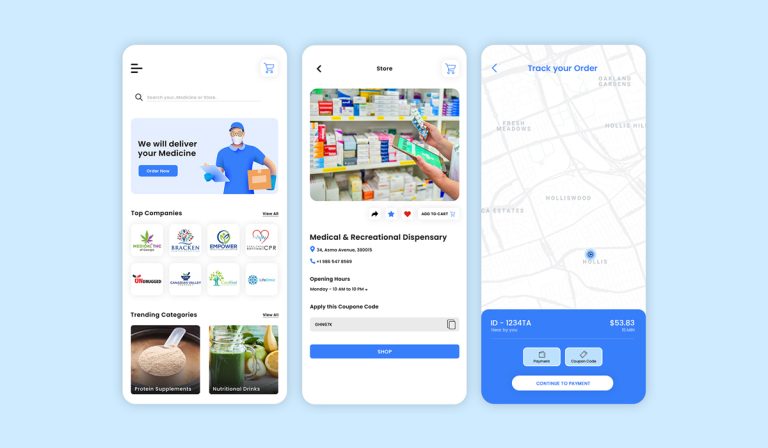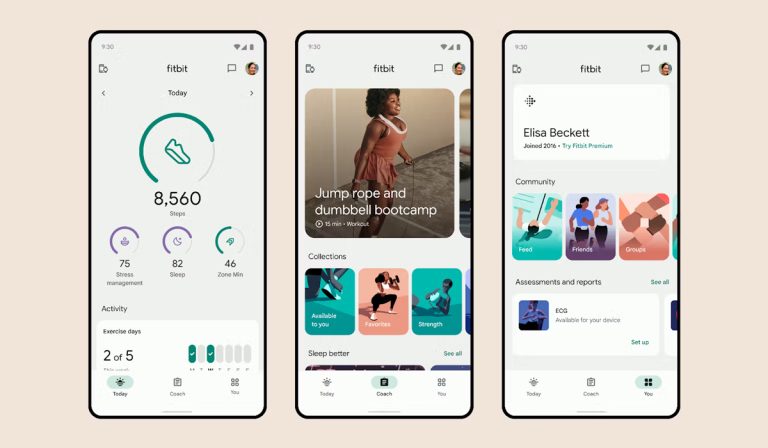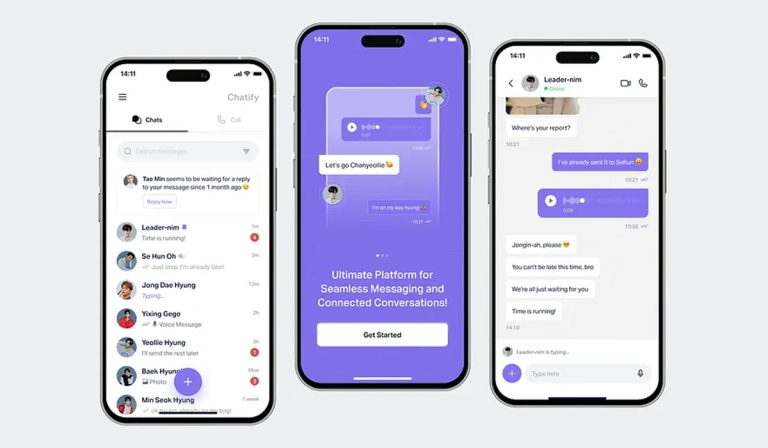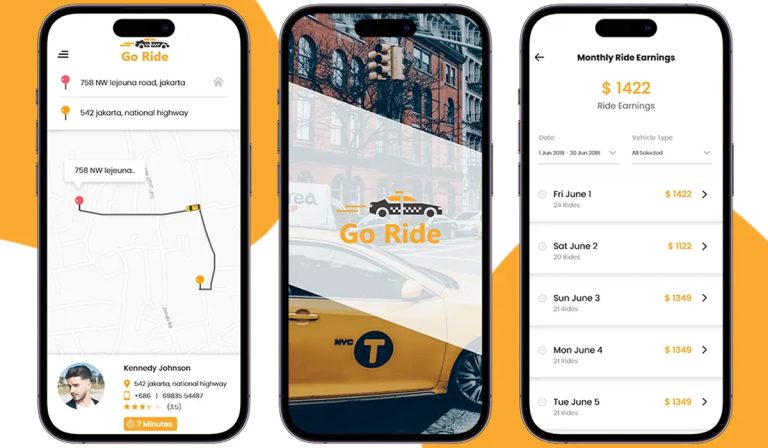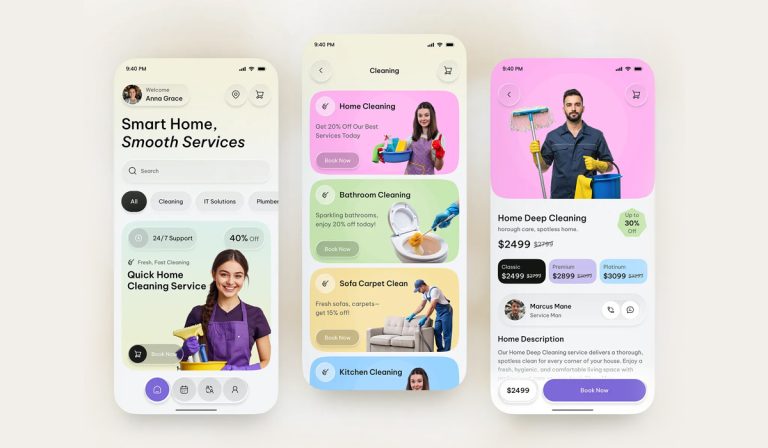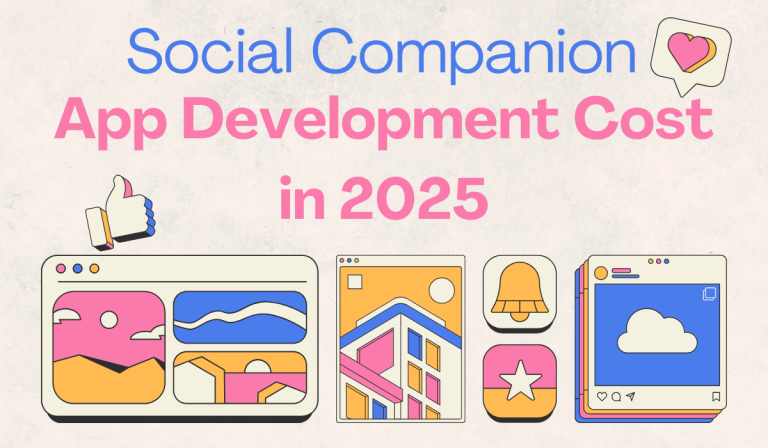Healthcare App Development Cost in 2025: What Actually Drives the Price
How expensive could it be?

Market Landscape

Current Market Size
$36.68-$40.65 billion (2024)
Projected Market Size
$86.37-$88.70 billion by 2030
Growth Rate
11.8-14.8% CAGR
Global Active Users
5.8 billion unique mobile subscribers with 71% penetration
Revenue Per User
Average $15-45/month for premium healthcare subscriptions
Market Leaders & Their Success:
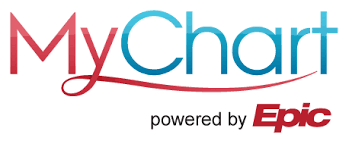
195+ million patient records, 75% hospital market share

$2.4 billion revenue (2023), 61+ million global members

$853 million revenue, focus on telehealth platform integration
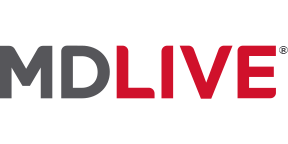
Fastest growing (400% user growth), care delivery
Why This Market Is Exploding
The pandemic accelerated telehealth adoption permanently. Global healthcare app market surged from $36.68 billion in 2024 to a projected $88.70 billion by 2030, with 11.8-14.8% CAGR. Teladoc reached $2.4 billion in revenue with 61+ million global members, while Epic MyChart now manages 195+ million patient records . Patients now expect HIPAA-compliant messaging and AI-powered diagnostics.
Emerging Opportunities:
- Medical specialties (oncology, cardiology, mental health)
- AI-powered diagnostic tools
- Remote patient monitoring systems
- Virtual reality therapy experiences
- Blockchain-based health records verification
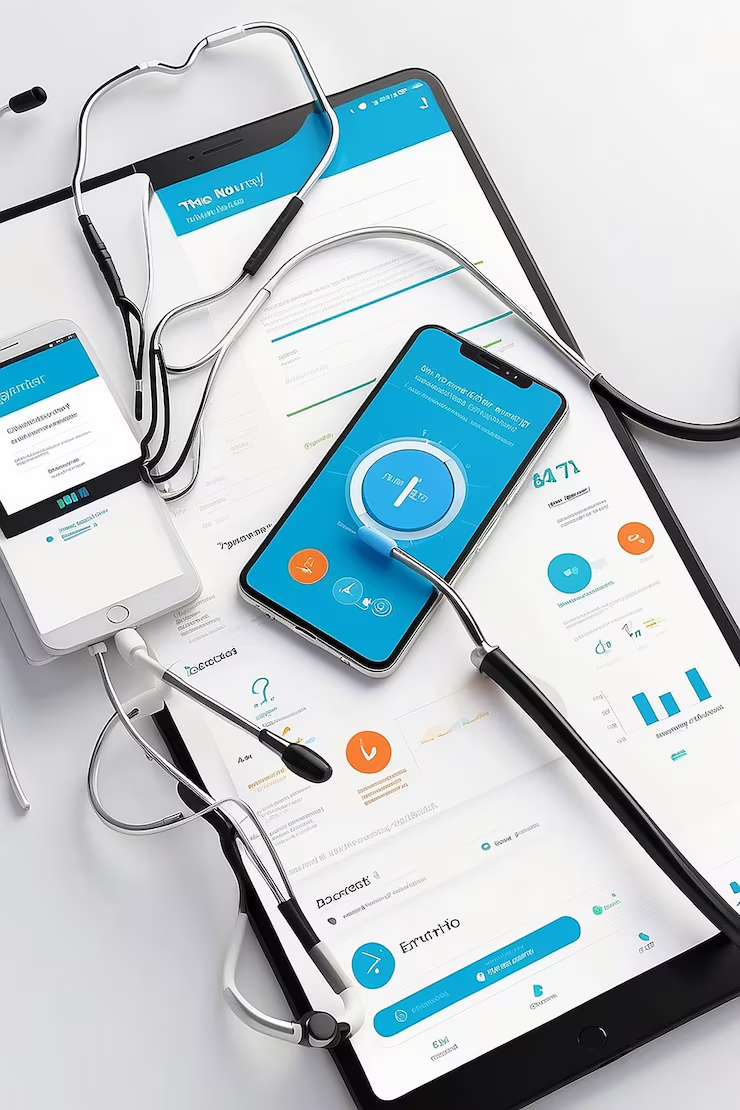
Essential Features Deep Dive
Core Features (Market Entry Requirements)
Development Cost: $60,000-$100,000
- HIPAA-compliant user registration systems
- Multi-factor authentication (MFA) integration
- Comprehensive health profile creation with medical history
- Privacy controls and data access permissions
- Secure patient portal with document management
Essential Communication
- HIPAA-compliant messaging with healthcare providers
- Encrypted file sharing for medical documents
- Appointment scheduling and reminders
- Video consultation capabilities
- Care team collaboration tools
- End-to-end encryption for all patient data
- Audit trail logging for compliance reporting
- Role-based access control for healthcare staff
- Data backup and disaster recovery systems
- Incident reporting and breach notification protocols
- Electronic health record (EHR) integration
- Prescription management and refill requests
- Lab results and diagnostic imaging access
- Basic symptom tracking and monitoring
- Insurance verification and billing integration
Competitive Features (Differentiation Factors)
Development Cost: $80,000-$150,000
- AI-powered symptom checkers and diagnostic assistance
- Predictive analytics for health risk assessment
- Integration with wearable devices and IoT sensors
- Real-time vital signs monitoring
- Clinical decision support systems
Enhanced Communication Tools
- Multi-party video conferencing for care teams
- Secure voice messaging and transcription
- Language translation services for diverse patients
- Emergency alert systems with GPS location
- Automated appointment scheduling with provider availability
- HD video consultation infrastructure
- Screen sharing for medical document review
- Digital prescription writing and e-prescribing
- Remote patient examination tools
- Virtual waiting room management
- Personalized health education content
- Medication adherence tracking and reminders
- Chronic disease management programs
- Health goal setting and progress tracking
- Social support groups and peer connections
- Machine learning diagnostic algorithms
- Natural language processing for medical notes
- Computer vision for medical imaging analysis
- Predictive modeling for treatment outcomes
- Personalized treatment recommendation engines
- Hospital information system (HIS) connectivity
- Laboratory information system (LIS) integration
- Radiology information system (RIS) connectivity
- Pharmacy management system integration
- Health information exchange (HIE) participation
Business Intelligence Features
- Comprehensive analytics dashboard for providers
- Population health management tools
- Quality metrics and outcome tracking
- Revenue cycle management integration
- Regulatory reporting automation
Development Cost: $75,000-$125,000
- Augmented reality for medical training and procedures
- Blockchain-based health record verification
- IoT integration with smart medical devices
- Voice AI assistants for hands-free operation
- 5G-enabled real-time data transmission
- International healthcare standards (HL7 FHIR)
- Global privacy regulation compliance (GDPR, PIPEDA)
- FDA medical device software requirements
- State-specific healthcare regulations
- Interoperability standards certification
Development Cost Breakdown

Timeline: 8-10 months
Core Development Breakdown:
Backend Development: $50,000-$75,000
- HIPAA-compliant user authentication and authorization
- Electronic health record (EHR) system integration
- Secure patient data storage and management
- HIPAA audit logging and compliance monitoring
- API development with healthcare standards (HL7 FHIR)
Mobile App Development: $55,000-$85,000
- iOS and Android native apps with medical-grade security
- Cross-platform UI/UX implementation for patients and providers
- Core medical feature development (appointments, records, messaging)
- Biometric authentication and device security
- Offline functionality for emergency access
HIPAA Compliance & Security: $25,000-$45,000
- End-to-end encryption implementation
- Security audit and penetration testing
- Business Associate Agreement (BAA) setup
- HIPAA training and compliance documentation
- Breach notification system implementation
- Medical device software testing standards
- HIPAA compliance verification testing
- Security vulnerability assessment
- User acceptance testing with healthcare providers
- Regulatory approval preparation
- Healthcare project coordination and compliance tracking
- FDA submission preparation (if applicable)
- App store submission with medical app requirements
- Initial deployment with HIPAA hosting
- Documentation and compliance training
Standard Dating Platform: $300,000-$450,000
Timeline: 12-16 months
- Multi-hospital system connectivity
- Real-time data synchronization
- Clinical workflow automation
- Provider credentialing integration
- Insurance eligibility verification
- HIPAA-compliant video calling platform
- Virtual waiting room management
- Multi-participant consultation support
- Screen sharing and annotation tools
- Automated consultation recording and storage
- Advanced verification systems
- Fraud detection algorithms
- Content moderation AI
- Privacy protection tools
- Compliance management
- Diagnostic assistance algorithms
- Diagnostic assistance algorithms
- Natural language processing for medical notes
- Computer vision for medical imaging
- Personalized treatment recommendation engines
- Advanced threat detection systems
- Multi-factor authentication implementation
- Role-based access control (RBAC)
- Audit trail comprehensive logging
- Incident response automation
Hidden Costs Reality Check
Infrastructure & Operational Costs:
- Dedicated healthcare cloud infrastructure
- Advanced security monitoring and compliance
- Automated backup and disaster recovery
- Geographic data redundancy for availability
- 24/7 security operations center (SOC) monitoring
Third-party Medical Services: $3,000-$15,000/month
- EHR integration services ($500-$2,000 per integration)
- Telehealth platform licensing ($0.15-$0.50 per minute)
- Medical device data processing ($1,000-$5,000/month)
- Insurance verification services ($0.50-$2.00 per verification)
- HIPAA compliance audits and assessments
- Legal consultation for healthcare regulations
- Business Associate Agreements (BAA) management
- Regulatory filing and approval processes
- Ongoing compliance monitoring and reporting
- Medical malpractice insurance for telehealth
- Cyber liability insurance for data breaches
- Professional indemnity coverage
- Regulatory investigation coverage
Timeline: 16-24 months
Enterprise-Grade Features:
- FDA-approved diagnostic algorithms
- Predictive modeling for population health
- Real-time clinical decision support
- Advanced medical imaging analysis
- Personalized medicine recommendations
- Multi-tenant healthcare architecture
- Global healthcare data compliance
- Advanced caching and performance optimization
- Auto-scaling for healthcare demand spikes
- Disaster recovery with <1 hour RTO
- Hospital information system (HIS) integration
- Laboratory information system (LIS) connectivity
- Pharmacy management system integration
- Health information exchange (HIE) participation
- Medical device ecosystem connectivity
Technology Stack & Architecture
Frontend Technology Decisions
Mobile Development Approaches:
Native Development (iOS + Android): $100,000-$150,000
- Optimal performance for medical applications
- Full access to device biometric features
- Platform-specific security optimizations
- Higher development and maintenance costs
- Recommended for enterprise healthcare apps
Cross-Platform (React Native/Flutter): $70,000-$120,000
- Faster development timeline
- Shared codebase reduces costs
- Good performance for most medical features
- Some limitations with advanced device integrations
- Suitable for MVP and mid-tier healthcare apps
Progressive Web Apps (PWA): $50,000-$80,000
- Broad accessibility across devices
- Easier compliance with web accessibility standards
- Limited offline functionality
- Suitable for basic patient portal applications
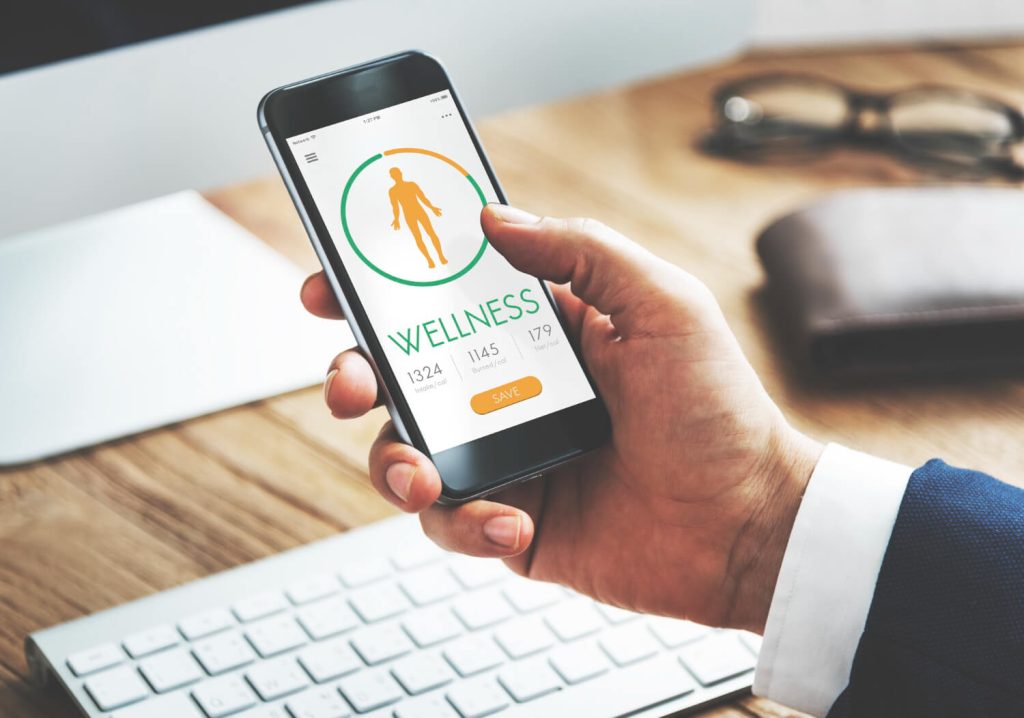
Backend Infrastructure Requirements
Core Backend Services:
- Patient Management System: Node.js with Express or Python Django for HIPAA compliance
- Real-time Communication: WebSocket implementation with end-to-end encryption
- EHR Integration Engine: HL7 FHIR standard implementation for interoperability
- Medical Image Storage: AWS S3 with HIPAA-compliant encryption and access controls
- Database Architecture: PostgreSQL for structured health data, MongoDB for unstructured medical documents
Scalability Considerations:
- Microservices Architecture: Essential for healthcare apps targeting 50,000+ patients
- Load Balancing: Auto-scaling groups with health monitoring and failover
- Caching Strategy: Redis for session management with HIPAA-compliant data handling
- Content Delivery: Global CDN for medical images with edge security
Message Queue Systems: For handling high-volume medical data processing
Critical Third-Party Integrations
Essential Healthcare Services:
- Payment Processing: Stripe, Square, or healthcare-specific processors with PCI DSS compliance
- Communication: Twilio for HIPAA-compliant SMS and voice services
- Analytics: Healthcare-specific analytics platforms with PHI protection
- Monitoring: HIPAA-compliant application monitoring and error reporting
- Authentication: OAuth 2.0 with healthcare identity providers
Medical-Specific Integrations:
- EHR Systems: Epic MyChart, Cerner, Allscripts API integrations
- Lab Services: Quest Diagnostics, LabCorp integration APIs
- Pharmacy: SureScripts for e-prescribing and medication management
- Insurance: Eligibility verification services and prior authorization systems
- Medical Devices: FDA-approved device APIs and data collection services
Phase 1: Healthcare Discovery & Regulatory Planning (8-12 weeks)
Market Research & Regulatory Analysis (3-4 weeks):
- Healthcare market research and provider needs assessment
- Regulatory landscape analysis (HIPAA, FDA, state requirements)
- Competitive healthcare platform analysis
- Clinical workflow analysis and user journey mapping
- Business model validation and reimbursement strategy planning
- HIPAA-compliant system architecture design
- Healthcare integration planning (EHR, HIS, LIS systems)
- Security framework and compliance requirements documentation
- Scalability planning for healthcare data loads
- Risk assessment and regulatory approval pathway planning
- MVP medical feature definition and clinical user story creation
- Healthcare development roadmap and regulatory milestone planning
- Risk assessment and mitigation strategies for medical applications
- Resource allocation and specialized healthcare team structure planning
- Budget finalization and regulatory approval timeline validation
Phase 2: Healthcare UX Design & Regulatory Preparation (6-8 weeks)
Clinical User Experience Design (3-4 weeks):- Healthcare provider and patient journey mapping
- Medical workflow wireframing and information architecture
- Usability testing with healthcare professionals and patients
- Accessibility design for diverse patient populations
- Emergency use case design and critical path optimization
- Healthcare brand identity and medical professional visual language development
- High-fidelity UI design for clinical and patient interfaces
- Medical data visualization and diagnostic display design
- Healthcare compliance visual elements and consent flow design
- Medical device integration interface design and documentation
Phase 3: Core Healthcare Development (20-28 weeks)
HIPAA-Compliant Backend Development (8-12 weeks):- Healthcare database setup and HIPAA-compliant API development
- Patient authentication and role-based access control implementation
- EHR integration and medical data processing systems
- HIPAA audit logging and compliance monitoring infrastructure
- Medical data encryption and secure transmission protocols
- iOS and Android healthcare app structure and security implementation
- Clinical and patient feature development with medical workflows
- Healthcare provider dashboard and patient portal implementation
- Medical device integration and biometric authentication
- Healthcare compliance features and emergency access protocols
- EHR system integrations and healthcare API testing
- HIPAA compliance verification and security penetration testing
- Medical workflow testing with healthcare providers
- Emergency scenario testing and failover system validation
- Performance testing under healthcare data loads
Phase 4: Advanced Healthcare Features (12-16 weeks)
Clinical Enhancement Development (6-8 weeks):- Advanced EHR integration and clinical decision support
- Telehealth platform integration and video consultation features
- AI-powered diagnostic tools and predictive analytics implementation
- Medical imaging integration and clinical documentation systems
- Population health management and care coordination tools
- Medical billing integration and insurance processing systems
- Healthcare provider credentialing and patient eligibility verification
- Medical compliance reporting and audit trail management
- Healthcare analytics and outcome tracking implementation
- Provider payment processing and reimbursement management
- Medical data processing optimization and clinical workflow performance
- Healthcare database performance tuning for large patient populations
- Medical compliance optimization and regulatory reporting efficiency
- Security hardening and HIPAA compliance verification
- Healthcare scalability testing and hospital system load balancing
Phase 5: Medical Compliance & Launch Preparation (8-12 weeks)
Comprehensive Healthcare Testing (4-6 weeks):- Clinical functionality testing across all medical workflows
- HIPAA compliance and security penetration testing
- Healthcare provider user acceptance testing
- Medical emergency scenario and disaster recovery testing
- Multi-hospital system compatibility and interoperability testing
- Medical app store submission with healthcare compliance documentation
- Healthcare provider training material preparation
- Patient onboarding flow optimization and medical consent processes
- Healthcare customer support system setup with medical knowledge base
- Clinical go-live strategy implementation and provider rollout planning
- Healthcare launch execution and clinical workflow monitoring
- Patient and provider feedback collection and medical outcome analysis
- Healthcare performance monitoring and compliance verification
- Medical bug fixes and immediate clinical workflow improvements
- Healthcare success metrics tracking and clinical outcome reporting

Timeline Variables That Impact Delivery
Factors That Extend Timeline:
- Complex EHR integration requirements (+6-12 weeks)
- FDA medical device approval process (+12-24 weeks)
- Multi-state healthcare licensing requirements (+4-8 weeks)
- Advanced AI diagnostic algorithm development (+8-16 weeks)
- Hospital system integration and testing (+4-8 weeks)
Factors That Accelerate Timeline:
- Pre-existing HIPAA compliance framework (-2-4 weeks)
- Established healthcare provider partnerships (-2-3 weeks)
- Proven medical technology stack utilization (-1-2 weeks)
- Experienced healthcare development team (-3-4 weeks)
- Simplified MVP medical feature set for initial launch (-4-6 weeks)
Regional Cost Analysis

North American Healthcare Development Costs
United States (Premium Healthcare Tier):
- Average Rate: $175-$300/hour
- Total Project Cost: $400,000-$750,000
- Advantages: HIPAA expertise, FDA knowledge, same timezone, healthcare domain experience
- Best For: Enterprise healthcare solutions, FDA-regulated devices, complex EHR integrations
Canada:
- Average Rate: $140-$220/hour
- Total Project Cost: $350,000-$550,000
- Advantages: Cost savings vs US, excellent healthcare system understanding, strong privacy law compliance
- Best For: Cross-border healthcare solutions, privacy-focused applications
European Healthcare Development Options
Western Europe (UK, Germany, Netherlands):
- Average Rate: $120-$200/hour
- Total Project Cost: $300,000-$500,000
- Advantages: GDPR compliance expertise, strong healthcare systems, excellent technical skills
- Best For: European market targeting, multi-country healthcare solutions
Eastern Europe (Ukraine, Poland, Romania):
- Average Rate: $60-$120/hour
- Total Project Cost: $180,000-$350,000
- Advantages: Strong technical skills, cost-effective, growing healthcare IT expertise
- Best For: Quality healthcare development with budget optimization
Asian Healthcare Development Markets
India:
- Average Rate: $30-$70/hour
- Total Project Cost: $120,000-$250,000
- Advantages: Large talent pool, cost-effective, growing healthcare IT sector
- Considerations: HIPAA compliance learning curve, time zone differences
Southeast Asia (Philippines, Vietnam):
- Average Rate: $25-$50/hour
- Total Project Cost: $100,000-$180,000
- Advantages: Very cost-effective, improving healthcare technology understanding
- Considerations: Limited healthcare regulatory experience, quality variation
Quality vs Cost Trade-offs
Critical Considerations:
- Healthcare Domain Expertise: Complex medical workflows require experienced healthcare developers
- Regulatory Knowledge: HIPAA, FDA, and medical device regulations impact development approach
- Security Standards: Healthcare security requirements exceed typical app security needs
- Integration Complexity: Hospital systems and EHR integrations require specialized knowledge
- Compliance Management: Ongoing regulatory compliance needs experienced oversight
DD’s Healthcare Approach: We utilize a strategic combination of US-based healthcare compliance and architecture expertise with carefully selected global development talent, providing optimal quality-to-cost ratio while maintaining HIPAA compliance and medical domain expertise.

Proven Revenue Models
Subscription-Based Healthcare Model (75% of successful healthcare apps):
- Basic Tier: Patient portal access, appointment scheduling ($9.99-$19.99/month)
- Premium Tier: Telehealth consultations, AI diagnostics ($29.99-$79.99/month)
- Enterprise Tier: Hospital system integration, multi-provider access ($199-$999/month)
- Conversion Rates: 8-15% of patients typically convert to paid tiers
- Average Revenue Per User (ARPU): $25-65/month for paying healthcare subscribers
Fee-per-Service Healthcare Strategy:
- Telehealth Consultations: $25-$150 per consultation
- AI Diagnostic Services: $10-$50 per diagnostic analysis
- Specialty Consultations: $75-$300 per specialist consultation
- Remote Monitoring: $50-$200 per month per monitored condition
- Healthcare Provider Commission: 5-15% of consultation fees
Healthcare Revenue Benchmarks by App Maturity
Months 1-12 (Healthcare Launch Phase):
- User Acquisition Focus: 1,000-25,000 registered patients
- Conversion Rate: 3-8% (higher than consumer apps due to medical necessity)
- Monthly Revenue: $2,500-$25,000
- Primary Goal: HIPAA compliance verification and provider onboarding
Months 12-24 (Healthcare Growth Phase):
- User Base Growth: 25,000-150,000 active patients
- Conversion Rate: 8-15% (improved with medical necessity and insurance coverage)
- Monthly Revenue: $25,000-$300,000
- Primary Goal: Hospital partnerships and insurance reimbursement integration
Months 24+ (Healthcare Maturity Phase):
- Established Patient Base: 150,000+ active patients
- Conversion Rate: 12-20% (optimized with insurance reimbursement)
- Monthly Revenue: $300,000-$2,000,000+
Primary Goal: Population health management and value-based care contracts
Healthcare User Acquisition Cost Analysis
Average Patient Acquisition Cost (CAC) by Channel:
- Digital Health Marketing: $25-$75 per patient
- Healthcare Provider Referrals: $15-$40 per patient
- Insurance Plan Integration: $10-$30 per patient
- Medical Conference and Events: $50-$150 per healthcare provider
- Organic/Medical SEO: $5-$15 per patient
Healthcare Lifetime Value (LTV) Calculations:
- Average Patient Engagement: 18-36 months
- Monthly Revenue per Paying Patient: $25-$65
- Estimated LTV: $450-$2,340 per paying healthcare subscriber
Target LTV:CAC Ratio: 4:1 minimum for sustainable healthcare growth
Healthcare Break-Even Analysis
Conservative Healthcare Growth Scenario:
- Development Investment: $350,000
- Monthly Operating Costs: $25,000-$45,000
- User Growth Rate: 15% monthly (lower due to medical verification requirements)
- Break-Even Timeline: 24-36 months
- Required Patient Base for Profitability: 75,000-125,000 active patients
Aggressive Healthcare Growth Scenario:
- Development Investment: $500,000
- Monthly Operating Costs: $45,000-$75,000
- User Growth Rate: 30% monthly (with hospital partnerships)
- Break-Even Timeline: 18-24 months
- Required Patient Base for Profitability: 100,000-200,000 active patients
Success Stories & Case Studies

Case Study 4: Hospital System Integration Platform
Client Background: Dating app targeting medical professionals Investment: $280,000 over 14 months Timeline: MVP in 8 months, full platform in 14 months
Key Metrics:
- User Growth: 0 to 125,000 registered users in 18 months
- Conversion Rate: 12% (higher than average due to niche targeting)
- Monthly Revenue: $85,000 by month 18
- User Retention: 65% monthly retention (vs 23% industry average)
- Average Session Time: 18 minutes (vs 8 minutes industry average)
Success Factors:
- Verification System: Medical license verification increased trust
- Niche Focus: Clear target audience with specific needs
- Premium Positioning: Higher subscription prices justified by quality
- Community Features: Professional networking elements increased engagement
Lessons Learned:
- Niche markets command higher prices and better retention
- Strong verification systems significantly impact user trust
- Professional audiences value quality over flashy features
- Community features drive engagement beyond just dating
Case Study 2: Mental Health & Therapy Platform
Client Background: Digital mental health platform with AI-powered therapy tools Investment: $380,000 over 16 months Timeline: Beta launch in 10 months, full launch in 16 months
Key Metrics:
- User Growth: 0 to 200,000 registered users in first year
- Daily Active Users: 35% (significantly above healthcare average)
- Average Session Duration: 28 minutes (therapy and meditation sessions)
- Revenue Growth: $0 to $320,000/month by month 30
- Clinical Outcomes: 65% improvement in patient-reported anxiety scores
Success Factors:
- AI-Powered Personalization: Machine learning therapy recommendations increased engagement
- Crisis Intervention: 24/7 crisis support created trust and safety for vulnerable users
- Provider Network: Licensed therapist integration enabled insurance billing
- Measurement Tools: Validated clinical assessment tools demonstrated efficacy
Lessons Learned:
- Mental health apps require specialized clinical expertise and crisis management protocols
- AI personalization significantly improves therapy outcomes and user engagement
- Insurance reimbursement for digital therapeutics is rapidly expanding market opportunity
- Clinical validation through peer-reviewed studies drives provider and payer adoption
Case Study 3: Remote Patient Monitoring System
Client Background: Chronic disease management platform for diabetes and hypertension Investment: $520,000 over 22 months Timeline: Research phase 8 months, development 14 months
Key Metrics:
- Patient Growth: 0 to 125,000 monitored patients in 30 months
- Clinical Effectiveness: 31% reduction in emergency room visits
- Provider Satisfaction: 4.6/5 rating from healthcare providers
- Insurance Coverage: 85% of patients covered through value-based care contracts
- Patient Adherence: 78% medication adherence rate (vs 50% industry average)
Success Factors:
- Medical Device Integration: FDA-approved glucose monitors and blood pressure cuffs
- Clinical Decision Support: AI alerts for out-of-range values improved provider response
- Value-Based Care: Demonstrated cost savings enabled insurance partnerships
- Patient Education: Personalized coaching improved self-management behaviors
Lessons Learned:
- Remote monitoring requires significant investment in medical device partnerships
- Value-based care contracts provide sustainable revenue models for chronic disease management
- Clinical decision support tools significantly improve provider efficiency and patient outcomes
- Patient education and coaching are essential for long-term behavior change and adherence
Case Study 4: Safety-First Dating Platform
Client Background: Enterprise platform connecting multiple hospital systems and providers Investment: $680,000 over 24 months Timeline: Architecture phase 10 months, development 14 months
Key Metrics:
- Hospital Partners: 15 hospital systems with 2,500+ providers
- Patient Records: 5.2 million patient records integrated across systems
- Interoperability Score: 95% successful data exchange between systems
- Cost Savings: $12.3 million in reduced administrative costs for hospital partners
- Clinical Outcomes: 18% reduction in medical errors due to complete patient data access
Success Factors:
- HL7 FHIR Standards: Complete interoperability compliance enabled seamless data exchange
- Enterprise Security: Advanced security framework met hospital IT requirements
- Workflow Integration: Minimal disruption to existing clinical workflows increased adoption
- Regulatory Compliance: Full HIPAA compliance and audit capabilities provided confidence
Lessons Learned:
- Hospital system integration requires significant upfront investment but provides substantial long-term value
- Interoperability standards compliance is essential for enterprise healthcare adoption
- Change management and provider training are critical for successful hospital system deployments
- Demonstrated ROI through cost savings and improved outcomes drives enterprise expansion
Q: What's the minimum budget needed for a competitive dating app?
$150,000-$200,000 for a viable MVP that can handle real patients and maintain HIPAA compliance. Apps built for less typically fail when they encounter compliance audits or attempt hospital integrations. This budget includes essential HIPAA features, basic EHR integration, and 8-10 months of development time.
Q: Why do healthcare app costs vary so dramatically between companies?
apps have unique regulatory requirements that many developers underestimate. HIPAA compliance alone can add 20-50% to base development costs, while EHR integrations, FDA requirements, and medical device connectivity create significant complexity variations. A basic patient portal costs $150,000, while an AI-powered diagnostic platform can exceed $750,000.
Q: What drives healthcare app costs higher than other app types?
A: Healthcare apps require specialized security (HIPAA compliance), complex integrations (EHR systems), regulatory approval processes, and specialized medical domain expertise. The average fine for HIPAA violations exceeded $2 million in 2023, making security investment non-negotiable. Additionally, healthcare apps need 99.9% uptime, advanced audit logging, and integration with hospital systems that standard consumer apps don’t require.
Q: Are there ways to reduce healthcare development costs without compromising compliance
Q: How long does it really take to build a dating app?
Q: Can we launch with basic features and add advanced ones later?
Q: What happens if development takes longer than estimated?
Q: Should we build native apps or use cross-platform development for healthcare?
A: For enterprise healthcare apps handling sensitive patient data, native development (iOS and Android) is recommended for optimal security, performance, and device integration capabilities. Cross-platform can work for basic patient portals but may require native modules for biometric authentication, medical device connectivity, and advanced security features required for HIPAA compliance.
Q: What backend infrastructure do we need for a healthcare app?
A: Healthcare apps require HIPAA-compliant cloud infrastructure with end-to-end encryption, audit logging, automated backups, and 99.9% uptime guarantees. Essential components include secure database management, EHR integration APIs, real-time communication systems, medical device data processing, and comprehensive monitoring. Plan for $5,000-$25,000/month in infrastructure costs depending on patient volume.
Q: How important are AI and machine learning features in healthcare apps?
A: AI features are becoming essential for competitive healthcare apps, with 73% of healthcare providers expecting AI-powered diagnostic assistance by 2025. However, AI in healthcare requires FDA approval for diagnostic claims, extensive clinical validation, and specialized healthcare data training. Budget $100,000-$200,000 additional for production-ready medical AI features.
Q: How much revenue can a successful dating app generate?
A: Successful healthcare apps generate $300,000-$2,000,000+ monthly at maturity. Revenue depends on patient base size, insurance reimbursement rates, conversion rates (8-20% typical for healthcare), and subscription pricing ($25-$79/month for patients, $199-$999/month for providers). Break-even typically occurs at 75,000-200,000 active patients.
Q: What's the typical return on investment timeline for healthcare apps?
A: Healthcare apps typically achieve break-even in 18-36 months due to longer sales cycles, insurance approval processes, and provider adoption timelines. However, successful healthcare apps often achieve 300-500% ROI within 4-5 years due to recurring revenue models, insurance reimbursement, and sticky medical necessity usage patterns.
Q: What ongoing costs should we budget for?
Pre-Development Preparation Checklist
Healthcare Market Validation (3-6 weeks):
- Conduct healthcare provider and patient needs assessment surveys
- Analyze competitor medical apps and clinical workflow integration
- Validate unique medical value proposition and clinical outcomes potential
- Define target patient populations and healthcare provider personas
- Assess addressable healthcare market size and insurance reimbursement potential
Healthcare Business Planning (3-4 weeks):
- Develop comprehensive healthcare business model and reimbursement strategy
- Create detailed medical feature prioritization and clinical MVP definition
- Establish budget allocation across development, compliance, and regulatory phases
- Plan healthcare provider acquisition and patient onboarding strategies
- Define clinical success metrics and health outcome KPIs for each development phase
Medical Technical Preparation (2-3 weeks):
- Research and evaluate HIPAA-compliant development partners with healthcare experience
- Understand EHR integration requirements and hospital system compatibility needs
- Assess medical device integration requirements for patient monitoring capabilities
- Plan HIPAA compliance and security audit requirements
- Evaluate FDA regulatory pathway requirements for diagnostic or therapeutic claims
Healthcare Budget Planning Worksheet
Healthcare Budget Planning Worksheet
Development Investment:
- Healthcare MVP Development: $150,000-$250,000
- Advanced Medical Features: +$100,000-$200,000
- AI/Clinical Decision Support: +$100,000-$150,000
- HIPAA Compliance & Security: 20-30% of base development cost
- Healthcare Project Management: 15-20% of development cost
Healthcare Operational Budget (Monthly):
- HIPAA-Compliant Infrastructure & Hosting: $5,000-$25,000
- Medical Third-party Services: $3,000-$15,000
- Compliance & Legal Support: $5,000-$15,000
- Professional Liability Insurance: $1,250-$4,200
- Healthcare Marketing & Provider Acquisition: $25,000-$150,000+
Healthcare Timeline Planning:
- Medical Planning & Regulatory Discovery: 8-12 weeks
- Healthcare MVP Development: 32-40 weeks
- HIPAA Compliance Testing & Launch: 8-12 weeks
- Medical Feature Enhancement: Ongoing
- Total Time to Healthcare Market: 12-18 months
Ready to Build Your Healthcare App Success Story?
After analyzing 300+ successful app launches and generating over $500 million in client revenue, we know what separates healthcare winners from the 87% that fail within their first year.
Your healthcare app success depends on three critical factors:
- HIPAA-Compliant Budget Planning: Understanding true medical development costs prevents expensive compliance surprises
- Medical Technical Architecture: Healthcare infrastructure that scales with your patient base and meets regulatory requirements
- Experienced Healthcare Development Partner: Team that’s built successful medical platforms with proven clinical outcomes
Don’t gamble your medical vision on inexperienced developers or unrealistic promises.
Get your real healthcare cost estimate, HIPAA compliance assessment, and clinical strategy roadmap in our free “Medical Idea-to-App” Strategy Session. We’ll show you exactly what medical features you need, what you can skip for MVP, and how to build healthcare infrastructure that thrives under real-world clinical usage and regulatory scrutiny.
Schedule Your Free Healthcare Strategy Session Now
What You’ll Get:
- Detailed healthcare cost breakdown for your specific medical vision
- HIPAA compliance roadmap and regulatory approval pathway
- Medical timeline and clinical milestone planning
- Healthcare risk assessment and regulatory mitigation strategies
- Post-launch growth and clinical outcome optimization guidance
Why Choose Dedicated Developers for Healthcare:
- 300+ successful apps with proven healthcare track record
- Healthcare apps in our portfolio serving 2+ million patients
- GSA-certified for federal healthcare projects ensuring government-grade security
- Average healthcare client ROI: 400% within 36 months
- 90% healthcare client retention rate (we grow with your clinical success)
- Located in Atlanta with 15+ years of healthcare development experience
Call (770) 274-4482 or email Contact@DedicatedDevelopers.com
Healthcare Partner Selection Criteria
Essential Healthcare Qualifications:
Proven experience with HIPAA-compliant healthcare applications
Portfolio of medical apps serving 50,000+ patients
Understanding of EHR integration and hospital system requirements
Experience with FDA regulatory submissions and medical device software
Strong healthcare security and HIPAA compliance track record
Transparent communication and healthcare project management methodology
Post-launch medical support and regulatory compliance maintenance capabilities
Healthcare Development Red Flags to Avoid:
Promises of healthcare compliance without demonstrated HIPAA experience
Quotes significantly below market rates for medical applications
No examples of successful EHR integrations or hospital partnerships
Poor understanding of healthcare workflows or clinical requirements
No clear HIPAA compliance methodology or security protocols
Reluctance to provide healthcare client references or clinical outcomes data
No ongoing compliance support or regulatory update services


